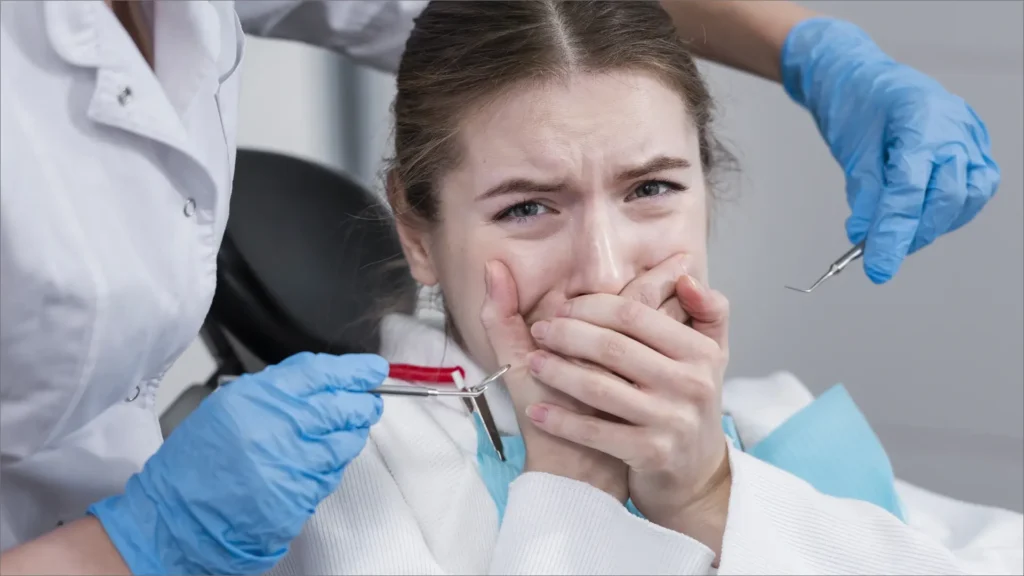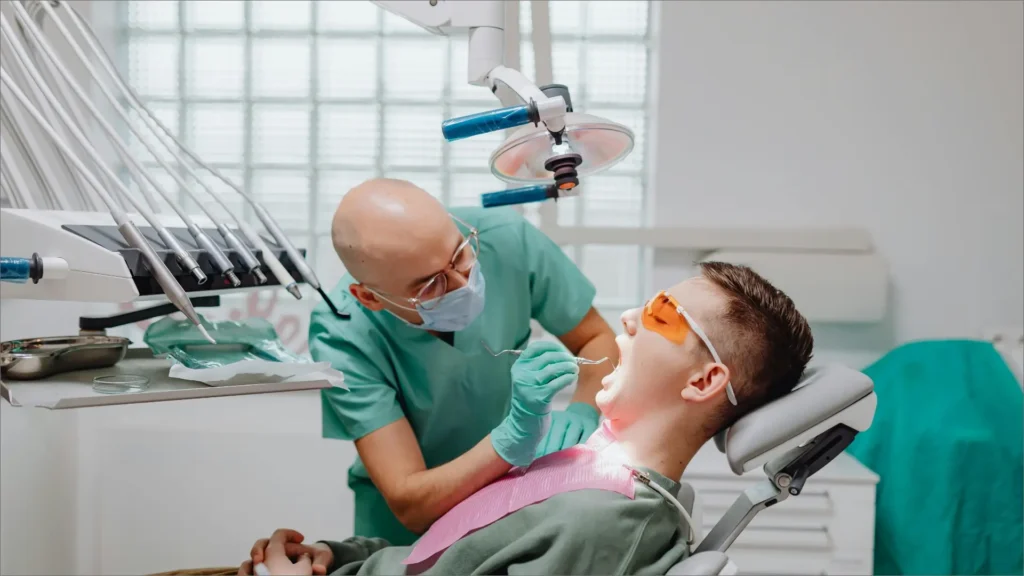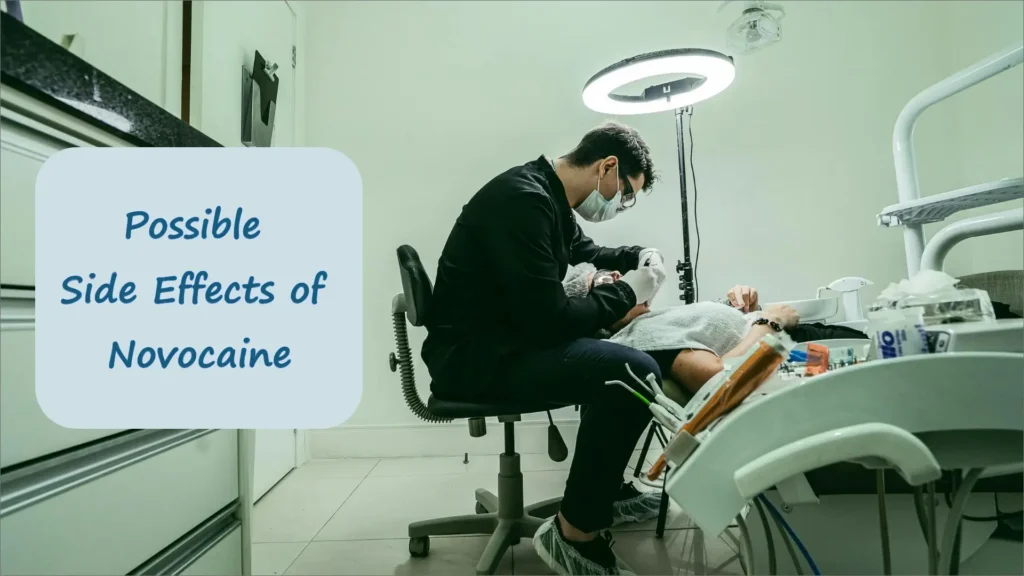You’ve probably heard of novocaine if you’ve ever gone to the dentist for a procedure. This local anesthetic has been a mainstay in dental clinics for many years, enabling painless patient treatment . Even though novocaine is generally regarded as safe, negative reactions are possible with any medicine.
To give patients a better idea of what to anticipate, this article delves into the potential negative effects of novocaine and explains them in simple terms.
What Is Novocaine?
A local anesthetic called novocaine, or procaine, is used to numb a particular part of the body. Dentists frequently use it to ensure patient comfort during dental procedures such as tooth extractions, root canals, and fillings. After injection, it temporarily numbs the targeted area by blocking nerve signals.
The relief it offers during dental procedures is priceless, even though the numbing effect is temporary. However, this medicine may have unexpected side effects for certain patients. Let’s explore those in more detail.
Common Side Effects of Novocaine
The majority of novocaine’s adverse effects are moderate and temporary. They frequently appear soon after the injection. As the drug passes off, these side effects normally go away. The most typical ones are as follows:
1. Numbness Beyond the Target Area
Novocaine may trigger numbness that extends outside of the treated area. For instance, if your dentist numbs your jaw, you may have numbness in your tongue, lips, or cheek. This is common and occurs because of the anesthetic’s effects on surrounding nerves. Usually, the feelings disappear in a few hours.
2. Swelling or Redness at the Injection Site
One of the most frequent side effects of novocaine is swelling or redness at the injection site. This occurs as a result of the area’s reaction to the injection. Usually minor, this redness or swelling disappears in a few hours. Applying a cold pack can reduce any soreness or swelling you may have.
3. Minor Pain or Soreness
You may experience some soreness or pain where the injection was administered after the Novocaine numbness fades. This is common and normally resolves in a day or two. There is nothing to be concerned about, even though the area may seem sensitive to the touch. The soreness may be lessened with over-the-counter painkillers.
Less Common Side Effects of Novocaine
Certain side effects are less common and can require medical treatment, but not everyone will experience them:
1. Headaches
Although they are typically not severe, headaches can occasionally occur after using novocaine. These headaches appear due to stress, the injection, or a drug reaction. Usually, they disappear on their own in a few hours. Resting and drinking water can help reduce the pain as soon as possible.
2. Dizziness
The sensation of being lightheaded or unsteady is called dizziness. Some people may experience temporary dizziness after using novocaine. If you are anxious or sensitive to the anesthesia, this may occur. It usually goes away soon and is moderate. Take a seat, take deep breaths, and let your dentist know if it feels.
3. Mild Nausea
Mild nausea is a stomach ache that may make you feel like vomiting, but it normally doesn’t turn worse. After receiving Novocaine, some individuals experience this, frequently as a result of the drug or anxiety. It normally disappears quickly and doesn’t require any extra care.
Severe but Rare Side Effects
In rare cases, Novocaine can cause serious side effects. These include:
1. Seizures
One of the uncommon side effects of novocaine is seizures. They occur when an individual is sensitive to anesthesia or when an excessive amount is administered. Loss of consciousness, disorientation, or jerky movements are possible symptoms. Seizures are rare but must be treated instantly to protect the patient and ensure healing.
2. Heart Complications
In some rare instances, novocaine may harm the heart, leading to issues such as a slowed heart rate or an irregular pulse. Usually, individuals with pre-existing heart issues or those taking excessive amounts experience this. To avoid this, dentists closely monitor the dosage. Seek professional help if you experience dizziness or chest pain.
3. Nerve Damage
Although it is very uncommon, novocaine can cause nerve injury if the injection is administered improperly or if the numbing is prolonged. The affected area may experience persistent tingling, weakness, or numbness. Most cases resolve with time but see your dentist if symptoms continue.

Allergic Reactions to Novocaine
Novocaine allergies are uncommon, however they may appear in certain patients. Symptoms of an allergic reaction can vary in severity and include:
- Hives or rashes
- Itching
- Breathing difficulties
- Facial or throat swelling
Inform your dentist immediately if you observe these symptoms. Even though they are uncommon, severe reactions need to be quickly treated.
How Long Do Novocaine Side Effects Last?
Novocaine’s negative effects often pass quickly. Most people feel numb for one to two hours, but this goes away as the drug fades off. Usually, any slight discomfort or swelling at the injection site goes away in a day.
Additionally, any nausea or vertigo should go away in a few hours. Although they are uncommon, more severe side effects can occasionally last longer. It’s crucial to contact your dentist or physician if any adverse effects intensify or continue. It will ensure everything is alright and you receive the appropriate treatment.
Tips for Managing Side Effects of Novocaine
Although side effects of novocaine are sometimes inevitable, the following advice may help:
Stay Calm
Side effects may seem more severe when you’re anxious. Taking steady and deep breaths can ease the ache and calm your nerves. Keeping your composure will make the dental procedures more comfortable and help you handle the numbing effects.
Avoid Chewing on Numb Areas
Since the numb areas are painless, you could bite your tongue or face, resulting in injury. To avoid unpleasant situations, wait for the numbness to end before eating or drinking.
Inform Your Dentist
Visit your dentist if you experience strange symptoms following the dental procedure. To prevent more discomfort or negative effects, they can change the dosage of your medication or recommend a different anesthetic.
Hydrate
Following the dental procedure, drinking a lot of water accelerates the flushing of the anesthetic from your body. Hydration also helps reduce swelling and promotes faster healing in the affected area.

When to Contact a Dentist or Doctor
Dentists are trained to handle unexpected issues to ensure safety during and after treatment. It’s vital to seek medical attention if you experience the following side effects after taking novocaine:
- Prolonged or severe edema
- Breathing difficulties
- Long-term numbness
- Unusual symptoms, such as intense chest discomfort or dizziness
Final Thoughts – Side Effects of Novocaine
While Novocaine is a safe and efficient anesthetic for dental treatments , it can sometimes cause negative effects including discomfort, swelling, or numbness. Most side effects are temporary and should disappear automatically in a few hours. Staying calm, avoiding chewing on numb areas, and staying hydrated can help manage discomfort. Ask your dentist for more advice if you encounter any odd symptoms or persistent side effects.
You may have a seamless, stress-free dental procedure by adhering to the above precautions and sharing problems with your dentist. Remember your dentist is there to ensure you are comfortable and safe during the procedure.
Read More: How Invisalign Works: A Step-By-Step Guide to the Invisalign Process

